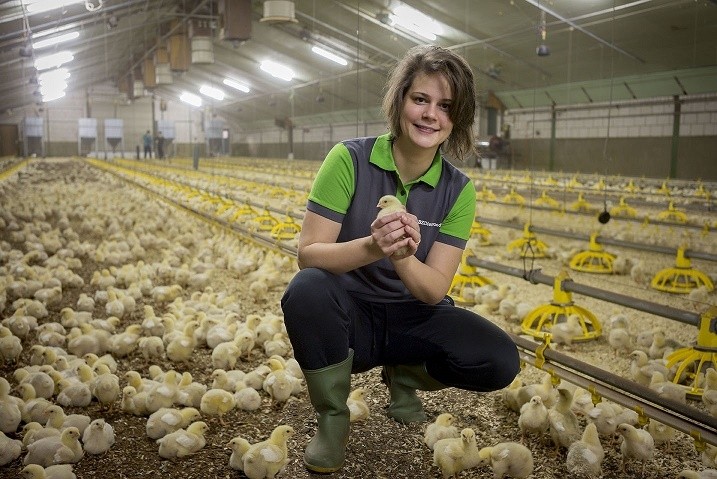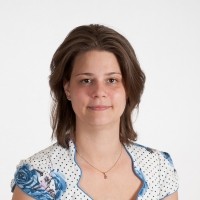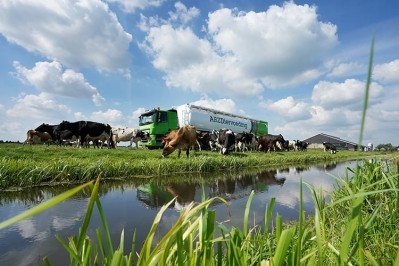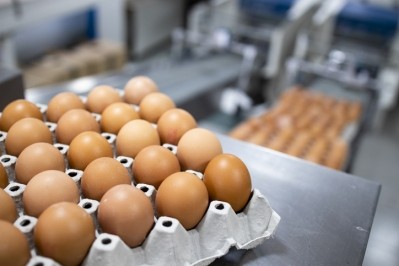Conversations about careers: Nutritionist at a feed firm

Passionate about her job, she is definitely not feeling the seven-year itch.
FeedNavigator: What’s your background?
Emily Frehen: I don’t have an agriculture background. I grew up in the middle of city, in Rotterdam, but was always fascinated by birds. I attended Wageningen University in the Netherlands from 2006-2012 for both my bachelor degree and my masters in animal sciences. During that time, I was particularly [attracted to] poultry and, eventually, feed as well. I did my masters in animal nutrition and that is also when my interest in the broiler breeder sector began, it is a very challenging field.
FEN: Did your university courses reflect the skillset required by the industry?
EF: Yes, very much. Of course, it was very research focused. I think that is a good thing because you want to have that scientific base before you start working as a nutritionist in the industry. MSc students at Wageningen University are often involved with PhD projects, so, through that work, they get to see some aspects of business.
FEN: Can you tell us about your career to date working as a nutritionist in the feed business?
EF: After graduation, I started working at an animal feed cooperative, it used to go by the name of Brameco-Zon. After a year or two it merged with another feed company to become ABZ Diervoeding. I began [my tenure there] as a quality manager. I did that for around 1.5 years and then I became a broiler breeder nutritionist, for a number of years. It suited me very well. About two years ago, I met up with my former MSc supervisor, Rene Kwakkel, who discussed PhD opportunities with me. I talked to management at ABZ Diervoeding about the possibility of doing a PhD, and they indicated they were willing to finance it. So for the past year or so, I have been partly a nutritionist and partly a PhD candidate. The subject of the doctoral thesis is wet feeding for broilers.
FEN: Is there such thing as a typical day in your current role? If so, what does it look like?
EF: That is a very difficult question. Every day is different. Of course, there are days I know I am in the lab from 8am to 5pm, running a qPCR. But the next day, I could be upgrading the matrix of the feedstuffs we have at ABZ Diervoeding. Unlike in my previous role as a full-time broiler nutritionist, upgrading recipes, I now carry out a more general nutritionist function, which besides looking at the raw materials, also involves writing articles, doing some research, and participating in meetings with other companies. There are several projects that we finance, and I tend to go to meetings concerning them.
FEN: What are your key learnings from your role as a broiler breeder nutritionist?
EF: We want to have broiler breeders to lay eggs, but genetically, they are made to grow fast, to make muscle. While we want the birds to grow, we don’t want them to grow as quickly as broilers. Formulating feeds to cater for this is a challenging but satisfying job.
FEN: What's the hardest thing about your role today?
EF: I think it is about trying to schedule everything, and trying to make sure my PhD project stays on track. Strictly, I have two days a week for my PhD, I have one day a week for my nutritionist work and I am at home with two children for the other two days.
FEN: What is the feed industry’s biggest challenge right now?
EF: In the Netherlands, I see that the gap is deepening between farmers and the wider society, with increasing aggression on both sides. The challenge is to try and build a bridge between the wider society and the farming community, to address climate change and animal welfare concerns. The feed industry can play a role in this respect by increasing its use of residual flows, [industry by-products] in feed formulations such as the hulls of sunflower seeds, rapeseed hulls, or leftovers from orange juice production. ABZ Diervoeding is involved in combined research with other companies in relation to that.










